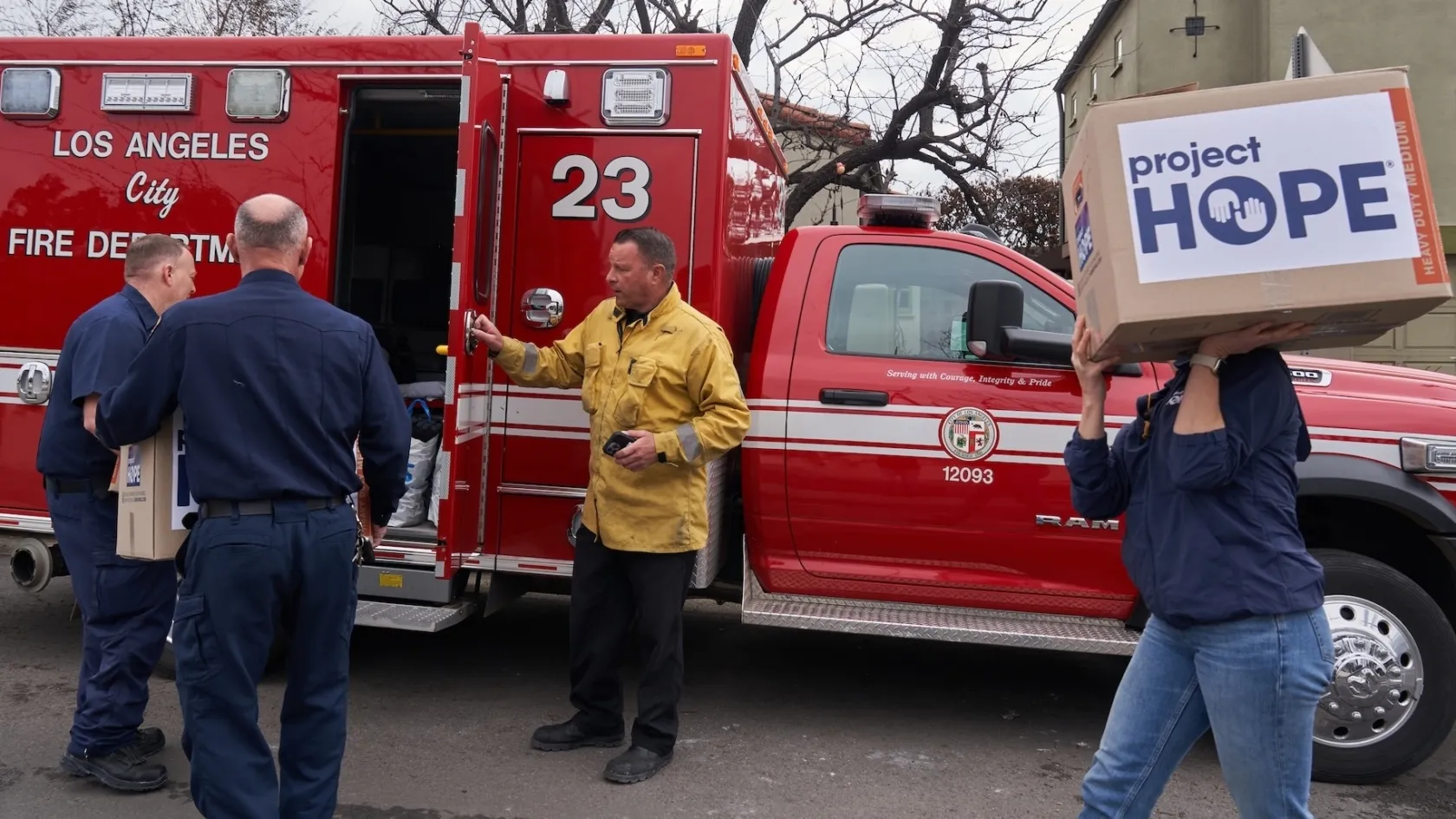Project HOPE Seeks to Address Effects of War on Ukrainian Refugees and Health Care Workers
May is Mental Health Awareness Month

Washington, D.C. (May 16, 2022) – Today, Project HOPE is recognizing Mental Health Awareness Month by outlining its plans to address the mental health needs of the people impacted by the violence in Ukraine, millions of whom have become refugees or are internally displaced.
“All Ukrainians – but health care workers in particular – have proven their strength and fortitude. But no person should be forced to suffer the atrocities that they are enduring,” said Rabih Torbay, Project HOPE’s President and CEO, who traveled to Ukraine recently and witnessed the devastation first-hand. “We must be conscientious about the long-term effects of war and trauma on their mental health and emotional well-being, and remember that, unlike physical wounds, these injuries are not easily seen or stitched up. However, as soon as our rapid response teams deployed to Poland, Romania, Moldova, and Ukraine, it became clear that we must prioritize mental health and psychosocial support for refugees, health workers, and other affected populations.”
In parts of Ukraine, people have been under constant siege from aerial bombardment and shelling. Women have been targeted with acts of gender-based violence, including rape, and vulnerable citizens have been deprived of electricity, food, water and medical attention. Families have been ripped apart. A majority of refugees and asylum seekers are women and children, and they are relocating to communities where many do not speak the language and are unsure whether they will ever see their husbands, fathers, and sons again.
Across the globe, emotional distress, and mental disorders – exacerbated by the COVID-19 pandemic – are practically ubiquitous, while mental health services are often overwhelmed, especially in areas afflicted by conflict and humanitarian crises. Russia’s devastating attacks on the Ukrainian people, however, pose a particular concern for Project HOPE’s work in Central and Eastern Europe, and the challenge of providing appropriate psycho-social support cannot be overstated.
Approximately 14 million people have either fled the country or remain internally displaced, and thousands of civilians have been killed. More than 200 Ukrainian health care facilities have been degraded by systematic attack, while neighboring countries have absorbed a substantial patient caseload, straining their health systems.
Meanwhile, mental health, which is already stigmatized, is difficult to prioritize when one is struggling to stay alive. And the ability to conduct conventional talk therapy, which relies on a trusting, one-to-one relationship between provider and patient, is compromised by language barriers and the lack of privacy afforded to many Ukrainian refugees. Of the mental health professionals in countries welcoming refugees, few are fluent in Ukrainian. Native Ukrainian therapists, by contrast, may be burdened by traumas of their own and in need of preventative care.
In addition to delivering shipments of medicines, medical supplies, and other support to health facilities in Ukraine, Project HOPE is collaborating with local governmental agencies and partnering with nongovernmental organizations that can provide counseling services. In Poland, Romania, and Moldova, the organization has also hired experienced mental health leads with clinical backgrounds, responsible for developing and implementing local programs.
At the onset of the COVID pandemic, Project HOPE employed an online training platform, targeted specifically at mental health concerns, to build resiliency among health care workers pushed to the brink by stress and fatigue. Those training courses are projected to reach more than 50,000 health workers across five continents. Project HOPE intends to utilize similar online training tools to teach psychological first aid and help health care providers in the Ukraine crisis, and is exploring the use of group sessions, language training, and other efforts to screen large numbers of people and build capacity.
“As a global health and humanitarian assistance organization, we are committed to a person’s whole health. That includes mental health. Mental Health Awareness Month is an important moment to focus on what Ukrainians are being forced to endure, the pain they are experiencing, and how we are responding,” Torbay added. “Our mission is to empower health workers to address localized needs in a sustainable manner, and that is what we are doing – adapting our approach as the unique health care needs of this humanitarian crisis emerge.”
###
Interviews with members of Project HOPE’s leadership team are available upon request.



